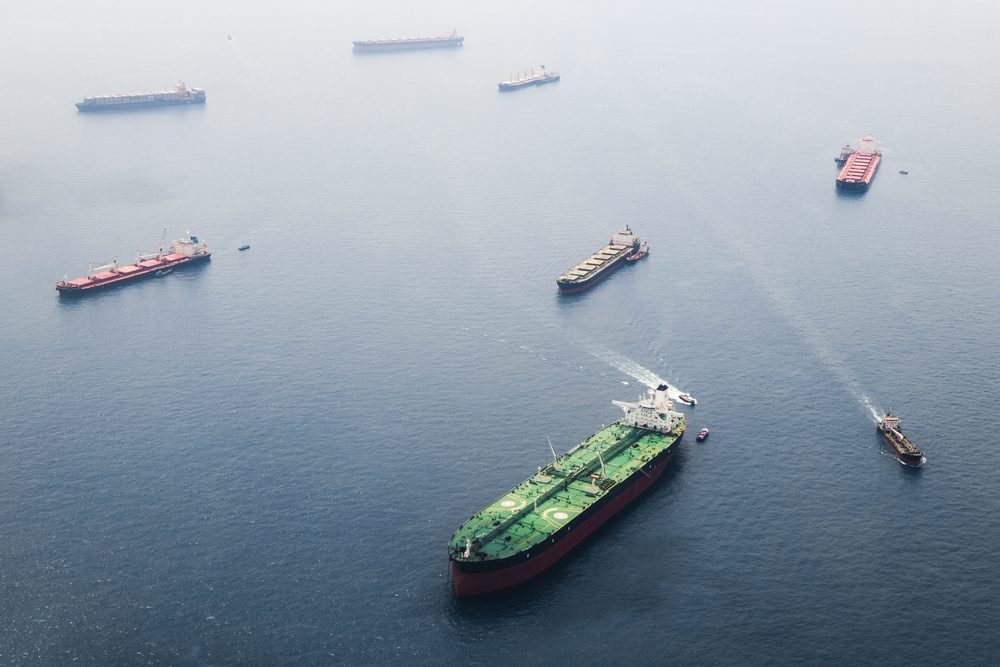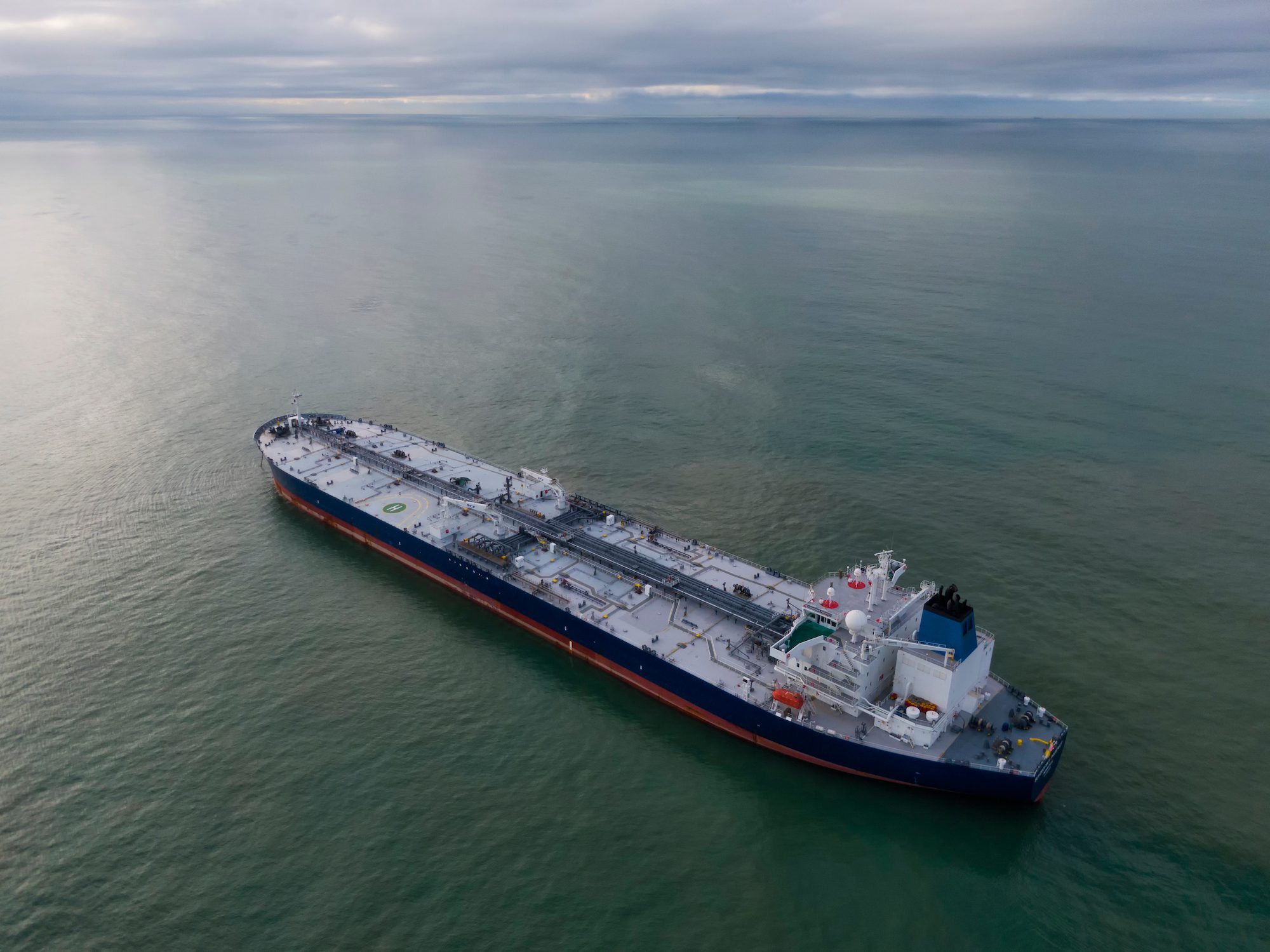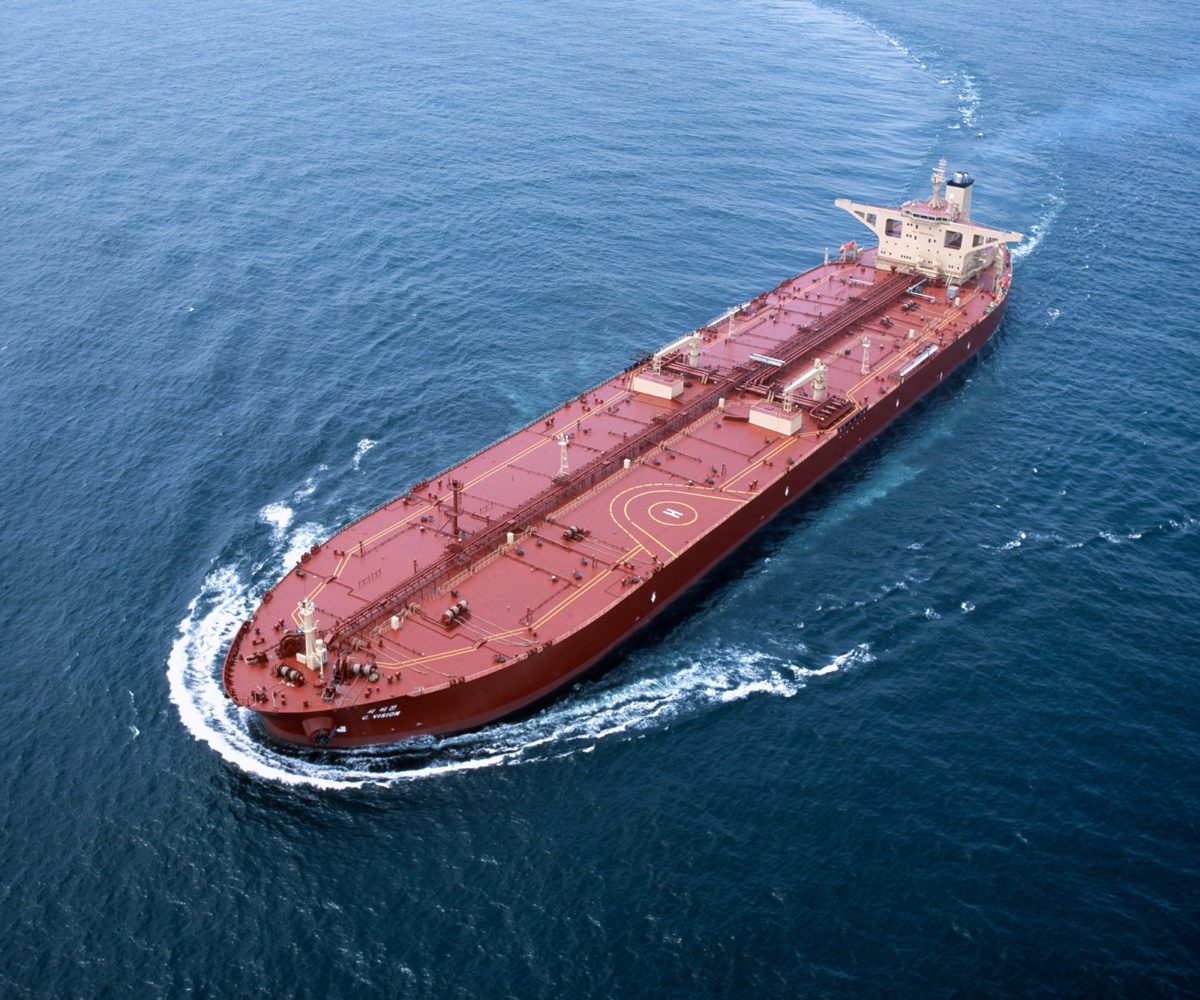By Alaric Nightingale and Alex Longley
(Bloomberg) — The world’s biggest oil companies are asking tanker operators to slow down delivery of crude amid an ever- expanding supply glut on land, Europe’s largest owner of supertankers said.
Tankers hauling 2 million-barrel cargoes are delivering them at speeds of about 13 knots, compared with a maximum of 15, Paddy Rodgers, chief executive officer of Antwerp, Belgium-based Euronav NV, said in an interview in London on Thursday. The slower speeds might result in a voyage that would normally take 40 days instead lasting 48. Shore-based supplies are getting so big that it’s probable the need for storage at sea may soon grow, he said.
The market is contending with a glut of oil that’s not going away because OPEC is insisting it didn’t create the excess and won’t tackle it alone. Countries within the Organisation for Economic Cooperation and Development have a near-record of almost 3 billion barrels of oil stockpiled, the International Energy Agency estimates.
“I’ve not seen a supply-side market like it in terms of the production of oil,” said Rodgers, a lawyer who joined Euronav two decades ago and is based in London, after an earlier interview with Bloomberg Television. His company’s VLCCs earned $55,000 a day last year, double what they made in 2014, thanks in part to fuel prices that plunged along with crude, he said.
Euronav’s shares rose 3.5 percent to 10.74 euros in Brussels. They’ve dropped 15 percent this year, giving the company a market capitalization of 1.71 billion euros ($1.86 billion).
The primary reason for slower speeds is because the supply of oil is so great that logistics are being strained at the sites where the cargoes are being delivered, Rodgers said. In China, average waiting times are about a week when normally there would be no delay, he said. Vessels are having to wait in the Middle East as well, which is also an abnormality, he said.
The current need for slower speeds is the opposite of what would normally happen at times when rates are low and fuel costs high. In that scenario, a shipping company would be the one seeking to cut speeds when their vessels are returning to loading ports to collect cargoes. Instead, Euronav ships return back to load ports as fast as possible.
While demand will gain faster than some forecasters anticipate this year because of low oil prices, the increase may not be enough to prevent oil being stored at sea, he said. Euronav would charge approximately 75 cents per barrel each month for storing, according to the CEO. Brent crude for April costs about 80 cents more than for March, data from ICE Futures Europe show. Traders incur additional expenses over and above freight.
The incentive for storing at sea is getting bigger. The gap between March and June futures — currently about $2.50 — would only need to widen about 20 cents more to cover the cost of keeping barrels at sea, according to analysts including Jonathan Staubo at Fearnley Securities, a brokerage in Oslo. Glencore Plc is said to be storing at least 4 million barrels in ships off Singapore and Malaysia, according to people familiar with the matter.
Given how far oil prices have plunged, there’s not much downside, Rodgers said in the interview with Bloomberg Television. The slump may mean that the International Energy Agency’s forecasts for demand growth are too low, he said in the interview.
Middle East shipments to the U.S. also appear to be increasing since the nation lifted a ban on exports this year, Rodgers said. The measure made the price of West Texas Intermediate increase on a relative basis compared with international grades, creating a greater incentive to purchase barrels from Persian Gulf producers, he said.
–With assistance from Grant Smith, Manus Cranny and Anna Edwards.
©2016 Bloomberg News
Editorial Standards · Corrections · About gCaptain
This article contains reporting from Bloomberg, published under license.

 Join The Club
Join The Club











